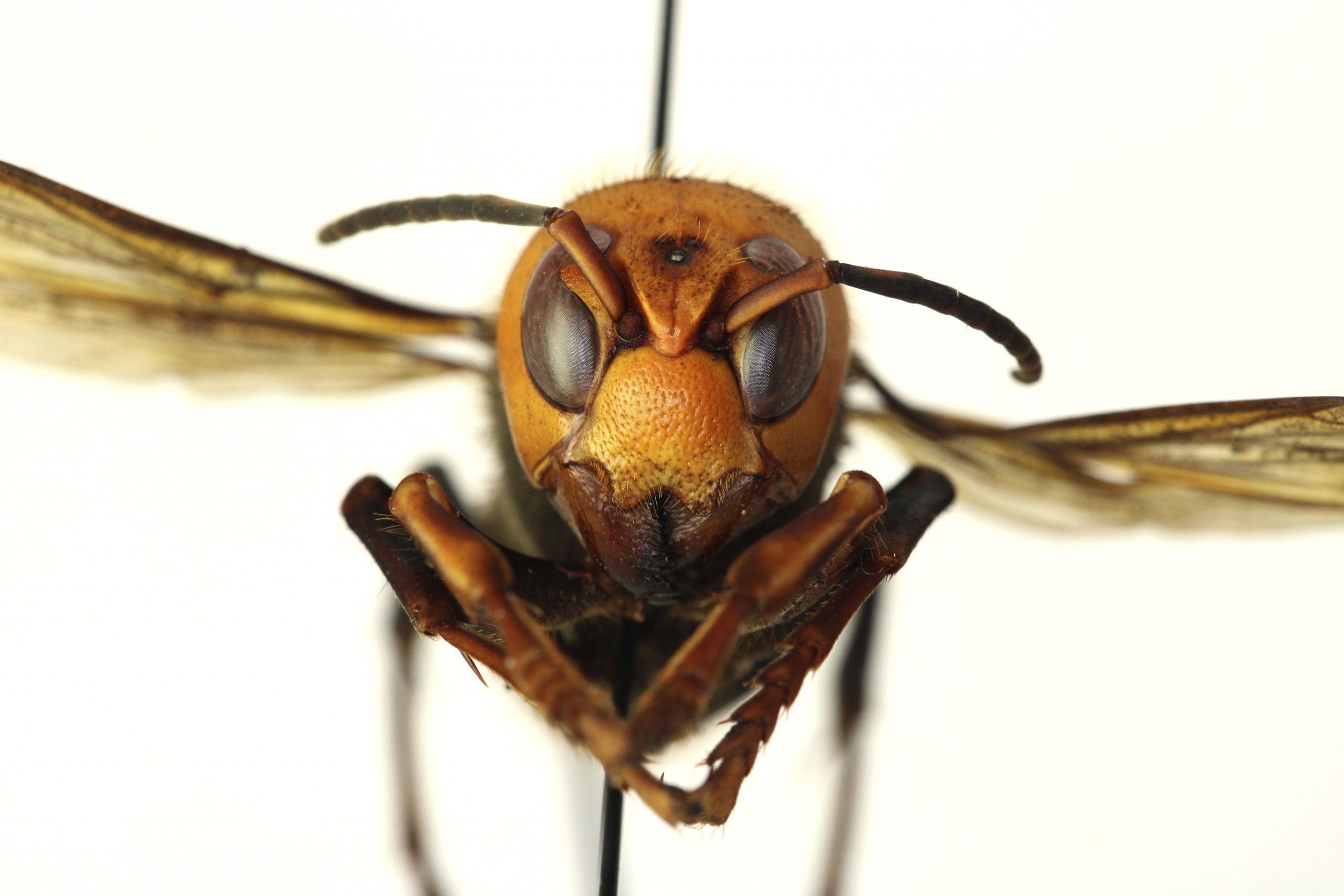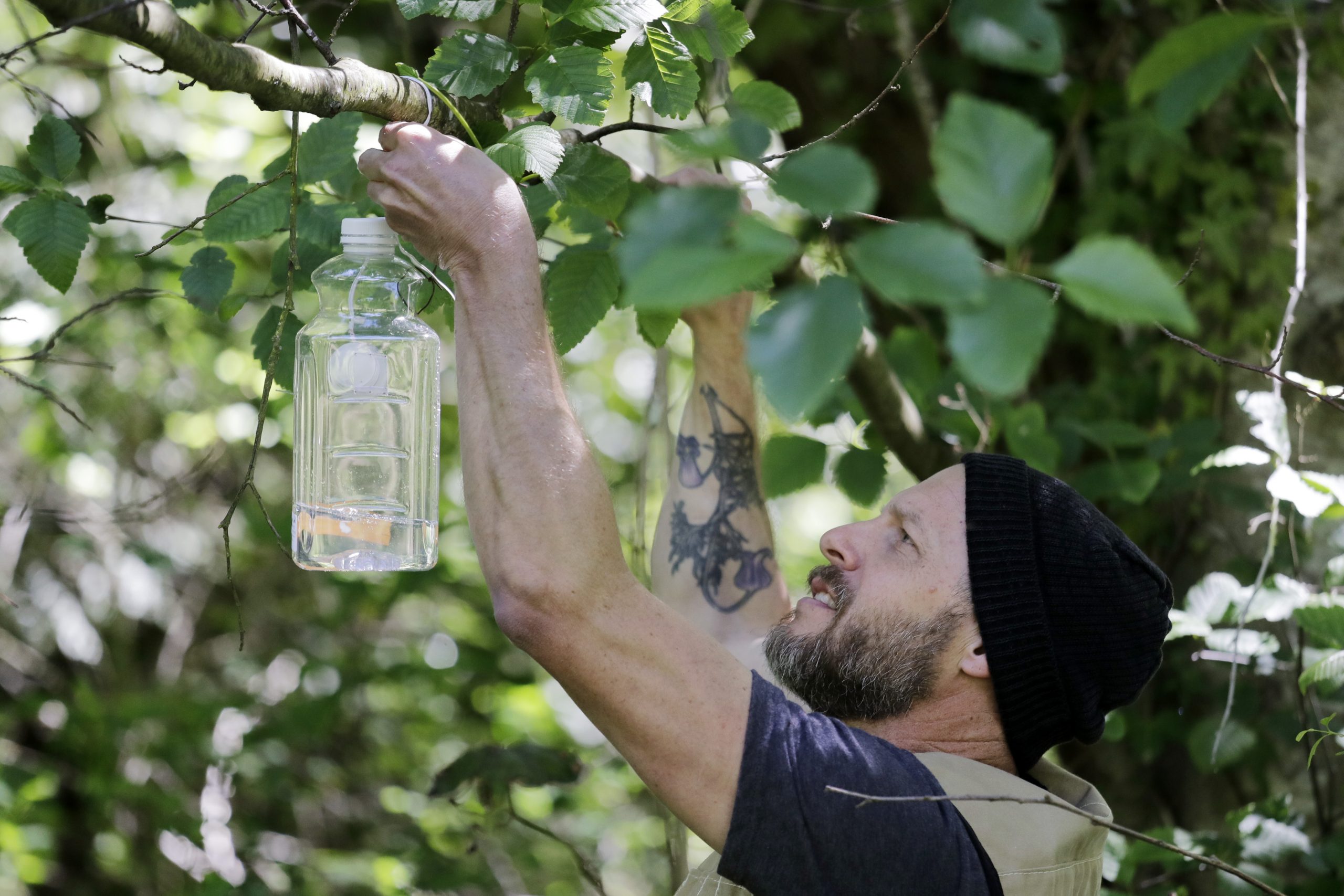A live Asian giant hornet was trapped this week in a promising step for scientists who hope to wipe out the invasive species.
Officials with the Washington State Department of Agriculture announced the capture in a Friday news release. The insect was trapped near Birch Bay in Whatcom County earlier this month, and scientists are already planning what to do when other “murder hornets” are captured.
“This is encouraging because it means we know that the traps work,” said Sven Spichiger, managing entomologist for the department. “But it also means we have work to do.”

Investigators said that the next steps in destroying the population of hornets is to place trackers on captured insects and allow them to head back to their colonies. Once the location of a colony is discovered, it will be systematically wiped out. The department also said it would search for nests using infrared cameras.
“WSDA hopes to find and destroy the nest by mid-September before the colony would begin creating new reproducing queens and drones,” the news release read. “Until that time, the colony will only contain the queen and worker Asian giant hornets. Destroying the nest before new queens emerge and mate will prevent the spread of this invasive pest.”

As the coronavirus forced states to shut down and as protests rocked the country, reports about the murder hornet’s presence in the Pacific Northwest began to emerge and stoked fears of a new 2020 malady. Despite the hype, only five other murder hornets have been spotted in the wild in Washington state. A single nest was discovered in Canada last year but was destroyed.
The insects get their moniker from their murderous nature toward honeybees, as they can wipe out an entire honeybee colony in hours, and their painful stings to humans. Although they sport a fierce name, experts say people in the United States should not be too worried.
“They are not ‘murder hornets.’ They are just hornets,” said Chris Looney, an entomologist with the state agriculture department, in May. “The number of people who are stung and have to seek medical attention is incredibly small.”
